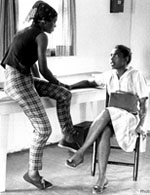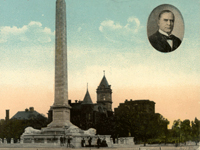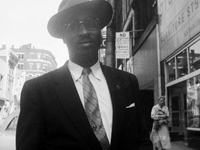Civil Rights in Mississippi Digital Archive

These 150 oral history interviews and 16 collections of documents address the civil rights movement in Mississippi. Interviews were conducted with figures on both sides of the movement, including volunteers and activists as well as "race-baiting" Governor Ross Barnett and national White Citizens Council leader William J. Simmons.
Document collections offer hundreds of pages of letters, journals, photographs, pamphlets, newsletters, FBI reports, and arrest records. Approximately 25 interviews also offer audio clips. Users may browse finding aids or search by keyword. Six collections pertain to Freedom Summer, the 1964 volunteer initiative in Mississippi to establish schools, register voters, and organize a biracial Democratic party. One collection is devoted to the freedom riders who challenged segregation in 1961. Four explanatory essays provide historical context. Short biographies are furnished on each interviewee and donor, as well as a list of topics addressed and 30 links to other civil rights websites.


